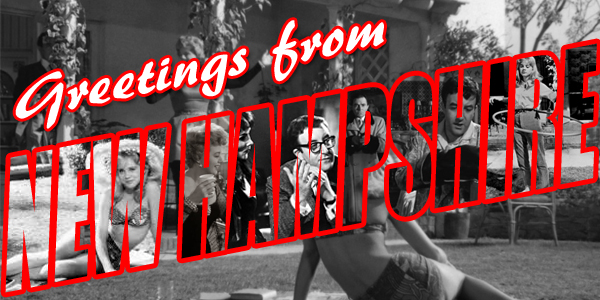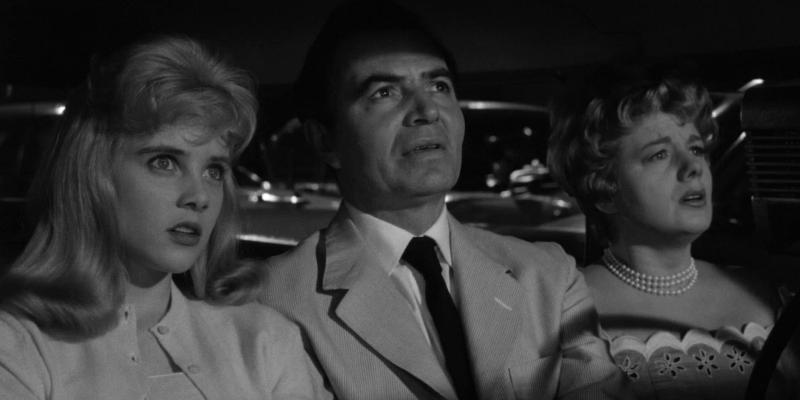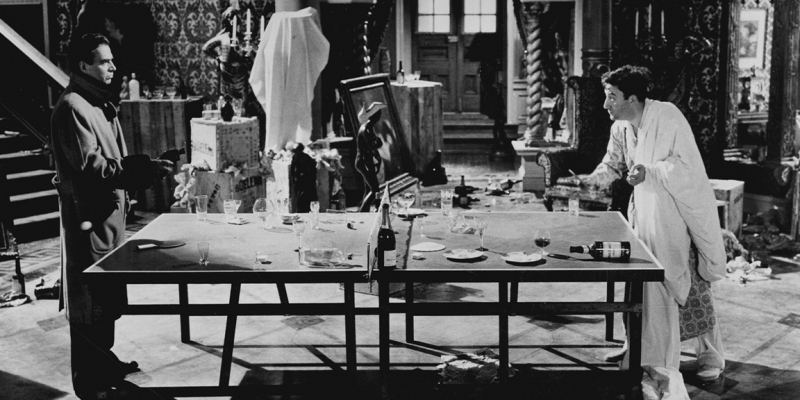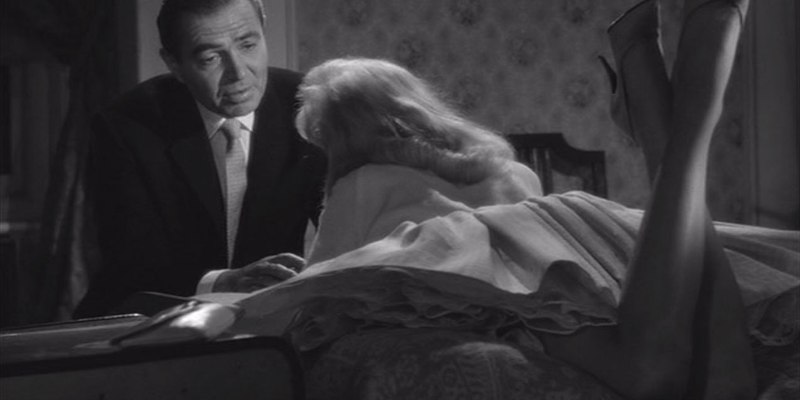
I’ve always wanted to travel across America. I’ve been a few times, to the major tourist attractions – Disneyworld in Florida, Vegas in Nevada, Cheers in Boston – but there’s so many places I’ve never seen in person, and most likely never will. Fortunately, there’s a solution, and it’s my own personal remedy to all life’s problems: movies. There’s been a movie set literally everywhere. Everywhere! So, this feature sees me cinematically visit a new state every week, through a film that was set there. You can read my journey so far here. Next up: New Hampshire!
Professor Humbert Humbert (James Mason) has a job as a French Poetry teacher lined up in Ohio in autumn, but until then he plans to spend the summer in New Hampshire, staying in the spare room of the widow Mrs. Charlotte Haze (Shelley Winters). It’s clear Charlotte takes an instant liking to Humbert, but he is instead infatuated with Charlotte’s 14-year-old daughter Lolita (Sue Lyon), who relishes this sudden influx of attention.

Before we go any further I’m well aware this was shot in England, but it’s set in New Hampshire so it counts for my criteria. Moving on. Prior to watching, Lolita promised little to garner my attention, considering the exceedingly icky subject matter of a grown, learned man in love with a child. There are few places that premise can go that would entice me to watch such a scenario unfold. Yet the promise of Stanley Kubrick’s direction is always more than enough to entice me in. Going in I’d envisioned heavy drama, tense melodramatic soap-opera scenes of despair and anguish over the inappropriateness of the situation. What I wasn’t prepared for was a black comedy.
This is amongst the last films in which I expected to encounter something akin to a Laurel & Hardy short, yet halfway through Lolita there’s a scene in which two adult men attempt to silently assemble a fold-out bed in a hotel room without waking someone asleep in the same room. They fall over themselves and the bed, bash their heads with the mattress and only succeed in erecting it when one of them leaps on top of the contraption as though he’s diving upon a live grenade. Inevitably the scene ends with the whole bed collapsing with him in it, and I suddenly found myself with no idea what I was watching. Lolita is, let’s not forget, a film about a man in love with an underage child, but it’s also pretty damn funny. Peter Sellers is in this film. One of the greatest comedic actors of any generation, and he’s in Lolita. How was I so unaware of even the genre of this film?

Whilst there are many comedic moments, the film rarely forgets the seriousness of its premise. As enjoyable as Sellers’ performance is – as Clare Quincy, a writer who also develops feelings for Lolita, but to a potentially more sinister degree – and it allows the infamous chameleon to don numerous personas as required, it’s often creepy, off-putting and despicable. And it’s this that allows us to engage with Humbert as a character. If he alone were the sole adult in love with a child, then even in spite of Mason’s human, flawed portrayal it’d be very difficult to see him as anything other than a monster. By introducing the jittery, predatory Quincy there’s now a spectrum of depravity, and Humbert is far from being at its extreme. He’s merely a man at the mercy of his own poor decisions and lack of will power. He’s fully aware of how inappropriate his behaviour is, and how it must appear to others, but he is compelled to act on it regardless, and the guilt is writ large across his face. Mason is terrific – there’s a built-in haughtiness to his voice that I adore – but aside from him and Sellers, who I cannot praise highly enough for being the most entertaining paedophile on screen, plaudits must be rained upon Sue Lyon as Lolita herself.
Lyon, who was sixteen when Lolita was released, is astounding. She justifiably nails the childish bratty side to her character, but elsewhere she exudes a confidence and ability to manipulate that far exceeds her years. I half expected her to remain a distant object of desire for most of the picture, but she plays a very integral role from early on. Comparatively Shelley Winters plays Lolita’s mother far more broadly, often in a farcical, extreme, cartoonish manner, but her character is such that this makes sense, it just becomes a little too much after not very long at all.

I’d been almost dreading getting around to Lolita – it is, after all, over two and a half hours long as well as following the subject matter at hand – but I’m now very glad to have seen it, if only for the inspiration to go out and watch some more Peter Sellers movies.

